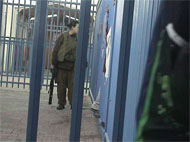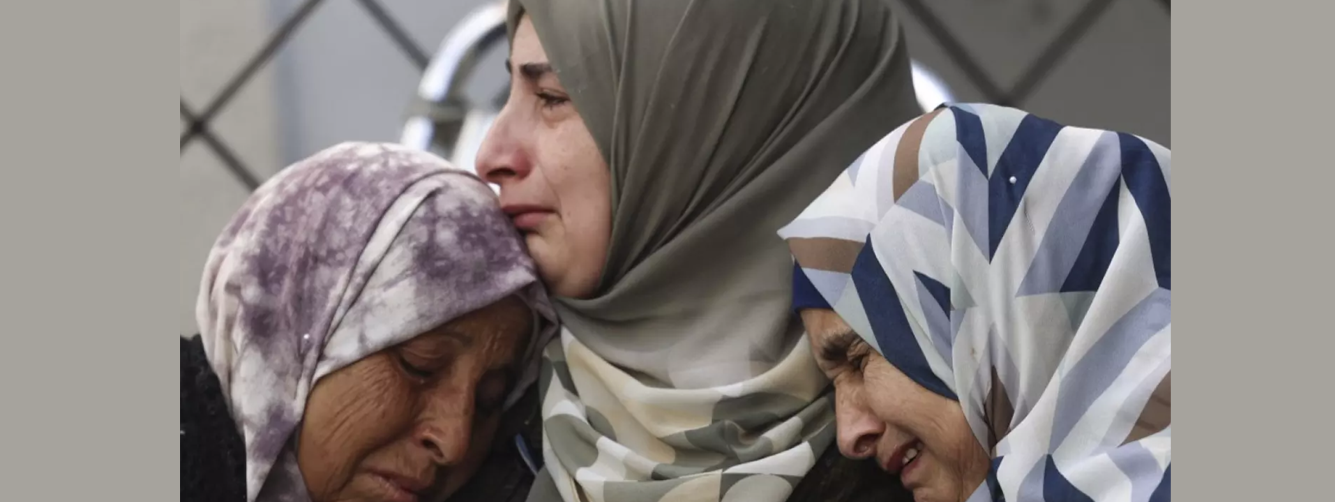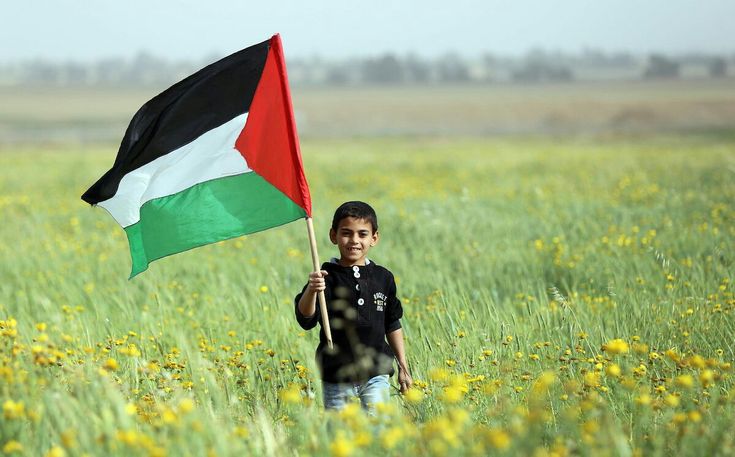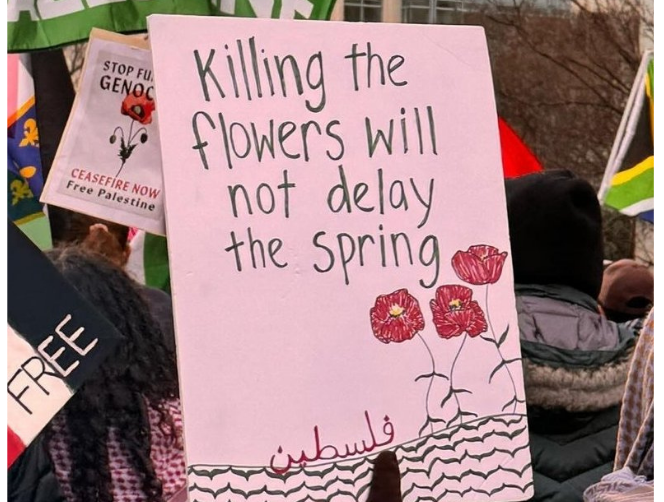
This weekend, I spent a lot of time travelling around Palestine, which inevitably meant having to cross through many of the Israeli-manned checkpoints scattered throughout the West Bank. I was travelling on public transport, sharing the bus with predominantly Palestinians. Being a British citizen, however, means that, unlike the Palestinians, I do not have to get down and walk through the checkpoint terminals. The Qalandia checkpoint, serving as a border between the West Bank town of Ramallah and Jerusalem, is perhaps one of the most glaring examples of the separative manner of the Israeli army.
Once the bus arrives at the checkpoint, any Palestinians who have a permit to travel to Jerusalem or possess a Jerusalem ID but are under 60 years of age, must alight from the bus and walk through hostile and uninviting metal turnstiles whereby the soldiers sitting behind the reinforced glass windows check the validity of their passes. Of course, this could easily be done if all the passengers remained on the bus. Certainly, the Israelis offer the timeless pretext of “security reason” for having to ask Palestinians to leave the bus and go through the terminal. However, it is actually purely for political reasons; surely if security is that much of an issue, everybody, regardless of their nationality or age, would be required to get off the bus. After all, terrorism is surely not confined to Palestinians under the age of 65, in possession of a Jerusalem ID or a travel permit. If security was truly the priority, every person on the bus would get down to go through the terminal and have their luggage scanned.
On this particular occasion, I was travelling with a fellow British citizen. As the Palestinians filed off the bus, we remained seated and the bus approached the checking area, where a soldier boarded the bus, nervously clutching his weapon across his chest. The five other people on the bus were all Palestinian, women aged between 60 and 70 years old, who did not speak Hebrew. He started barking at them in Hebrew to show their ID’s. He finally got to us, took one glance at our closed British passports, and without even checking the validity of our visas and to our surprise, broke into a broad East-London British. He started laughing and asking us what we were doing in Israel (despite us being in the West Bank of the Occupied Palestinian Territories at this point). I bluntly replied that I was here as my father is Palestinian, at which point he turned his back on me and said “Oh well, nobody is perfect”.
I take issue with this on more than one level. Firstly, when manning a checkpoint where the majority of those passing through it speak Arabic, to speak to them in Hebrew is yet another expression of the dominant and bullish behavior so regularly displayed by the Israeli army. As the occupier, and in order to avoid confusion and doubt when communicating with the Palestinians, it is feasible that they should have at least a basic knowledge of the language of the occupied people. Certainly, the Palestinian bus drivers all display a near-fluent grasp of Hebrew, once again displaying the submissive behavior which is now so engrained in so many Palestinians.
Secondly, the soldier who boarded my bus was yet another shining example of the sliding scale of treatment afforded to foreigners and tourists in comparison to the Palestinians. Several times, I have been greeted at checkpoints throughout the West Bank with “Welcome to Israel”. The West Bank is not part of Israel, it is indeed a land that was seized during warfare, but all it takes is for one to drive through the West Bank to realize that the two could not be further apart, both economically and visually. This really begs the question, are these soldiers just ignorant of the political storm in which they are operating, or does there lay a more sinister arrogance behind their refusal to acknowledge the lands of the Palestinian people?
National military service in Israel is a rite of passage. Apart from its military value, serving in the army has traditionally been credited with helping to integrate new immigrants and providing supplementary education to many young Israelis. National Service is mandatory for Israeli men and women aged over 18, although there are exceptions on the grounds of being in a minority group (Arab Israelis), those who are not fit physically or psychologically, married women with children or ultra-religious Jews. These youth are growing up without social constraints and hardships, enjoying their life in Israel, and then being thrown into the reality of the turmoil of the Palestine-Israel conflict.
The IDF Mission statement reads that the IDF will defend the existence, territorial integrity and sovereignty of the State of Israel. Furthermore, in 1992, the Israel Defense Forces drafted a Code of Conduct. Basic Principle A (on values) states that all IDF servicemen will express the basic values of comradeship, discipline, respect for human life, loyalty, personal example and professionalism. Which begs the question, does the soldier immaturely told me that “nobody is perfect” truly believe he is doing his country any great service? He certainly was not professional, nor did he afford any respect towards me or my fellow passengers.
Sadly, this was not an isolated incident. Whilst walking through the Bethlehem-Jerusalem Gilo checkpoint, two Palestinian men were walking ahead of me. We were the only ones using the checkpoint in the middle of the day. When we arrived at the checking box, a loud voice boomed over a speaker phone, in broken English “Tourist come first”. I, clutching my passport refused to go ahead of the Palestinian men, who were clearly on their way to work and were in a rush. Instead, I stood back and watched as the young female soldier screamed at them to produce their permits and turn to face the wall. She then proceeded to answer her ringing mobile phone and have a conversation for a couple of minutes before signaling to the men that they could pass through. Again, by treating the Palestinians in such a derogatory way, all these soldiers serve to do is bring shame on their own country; a country that constantly speaks about democracy and respect for the life of its citizens. In order for peace and respect between Palestinians and Israelis, Israel needs to start treating the Palestinians with the respect that it constantly demands of its molly-coddled citizens. These young men and women, who are drafted in, straight out of school, need to be politically and socially aware of the suffering that has arisen from this conflict and appreciate that their duty is not to be taken so lightly. For the time being, the Israeli army is not going anywhere; the least it can do is to educate it’s servicemen about the reality of the conflict. Up until their service, many of them are so unaware of the reality of life on the other side of separation wall, with only media outlets providing them with a biased view. It is about time that some of these soldiers realize that this is not a game they are playing; it is human life.







